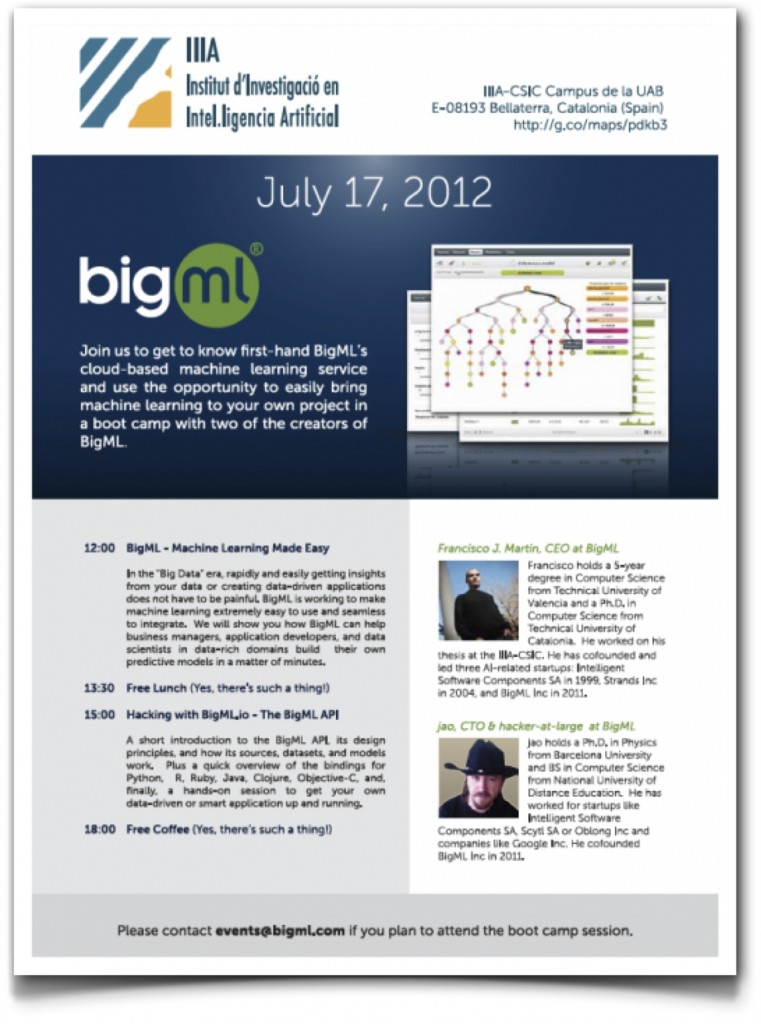- BigML, modeling and artificial intelligence
 |
BigML, modeling and artificial intelligence
|
It
took some time following BigML, the last creation of Francisco Martín,
with whom I had enough contact during his time in strands. In addition
to Francisco, you will find in the team of the company a few mythical
names of hacking and the machine learning. Last Tuesday we were talking
in a small presentation of the company, and now I have been invited to
join their Strategic Advisory Committee. The company is based in
Covallis, Oregon, hence most of the meetings are done through Google +
Hangouts.
BigML
is a tool in the cloud, still in closed beta by invitation, for a theme
that I love: the modeling of data and the development of models of
artificial intelligence (machine learning) from them. Very the thread of
tools that are emerging proposals by companies like Google, but with a
completely transparent and simple data policy: Your data are yours, only
yours, and nothing more than yours. The idea is that users can upload
data series to a safe environment and work on their analysis for the
development of predictive models on them. A topic that connects with my
interest in the trend that has been given in calling big data, on which I
have already written on several occasions, and with many of the tools I
have used in a regular way in my research, particularly the models of
structural equations that I had the luxury of being able to study at
UCLA with Peter Bentler, father of EQs , who I ended up asking to be
part of my doctoral thesis committee.
On
July 17, in the IIIa-CSIC in Barcelona, there will be a workshop on
BigML for those interested in the theme Big data, modeling and machine
learning. I get caught on the other side of the world at a conference in
Peru, but from what I've been seeing about the possibilities of BigML,
the thing can be really good.
There is a "homemade" video that illustrates the idea of the product in a very simple way:
You
can also see some predictive analytical models based on commonly used
free data files in academia, such as Titanic survival, credit risk
estimation, diabetes prevention, churn in telecommunications, etc. The
possibilities, from a set of data with a certain quality like those that
each day more are generated by the business operation, are practically
unlimited.
0 comentarios: